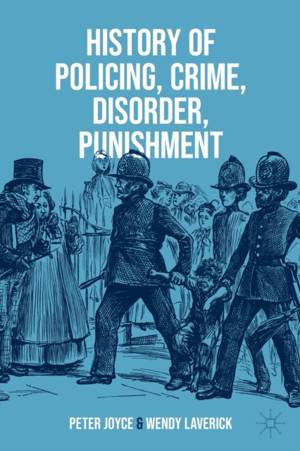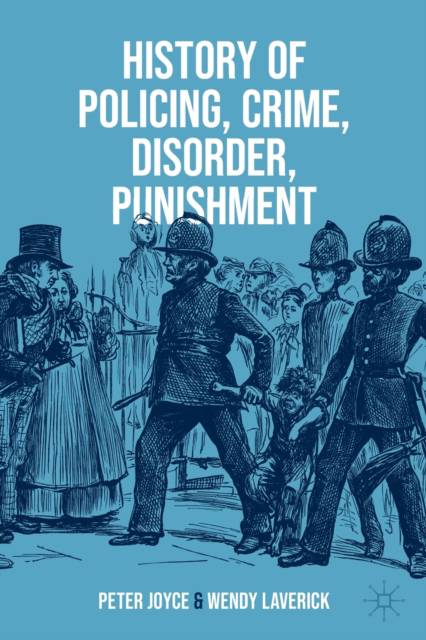
- Afhalen na 1 uur in een winkel met voorraad
- Gratis thuislevering in België vanaf € 30
- Ruim aanbod met 7 miljoen producten
- Afhalen na 1 uur in een winkel met voorraad
- Gratis thuislevering in België vanaf € 30
- Ruim aanbod met 7 miljoen producten
Zoeken
€ 52,95
+ 105 punten
Omschrijving
This engaging textbook provides a broad and unique coverage of the key historical events that shaped ideas in criminology, criminal justice and policing from the late seventeenth century to the early twenty-first century in England and Wales. It vividly illustrates the multi-disciplinary nature of criminology and penology by providing important insights into the social and political issues that shaped the development and operations of the criminal justice system and its responses to both crime and disorder.
Using key text boxes, this book highlights key people, theorists, foundational principles and events throughout. Part One discusses the nature of crime and forms of punishment between 1689 and 1750 and the penological concerns regarding the aims of punishment. Part Two focuses on crime and disorder between 1750 and 1850, examining the impact of urbanization on criminal activity and it considers the background and state responses to key episodes of public disorder. Part Threecovers the development of policing 1689-1856 and the contribution to policing made by reformers and the implementation of police reform. Part Four deals with a number of issues affecting crime and punishment between 1850 and 1920 including episodes such as Irish Home Rule within the context of 'high policing'. It evaluates changes to the nature and role of prisons that occurred in this period. This student-friendly book contains end of chapter questions which summarise and enable further discussion.Specificaties
Betrokkenen
- Auteur(s):
- Uitgeverij:
Inhoud
- Aantal bladzijden:
- 385
- Taal:
- Engels
Eigenschappen
- Productcode (EAN):
- 9783031368912
- Verschijningsdatum:
- 20/07/2023
- Uitvoering:
- Paperback
- Formaat:
- Trade paperback (VS)
- Afmetingen:
- 156 mm x 234 mm
- Gewicht:
- 566 g

Alleen bij Standaard Boekhandel
+ 105 punten op je klantenkaart van Standaard Boekhandel
Beoordelingen
We publiceren alleen reviews die voldoen aan de voorwaarden voor reviews. Bekijk onze voorwaarden voor reviews.











